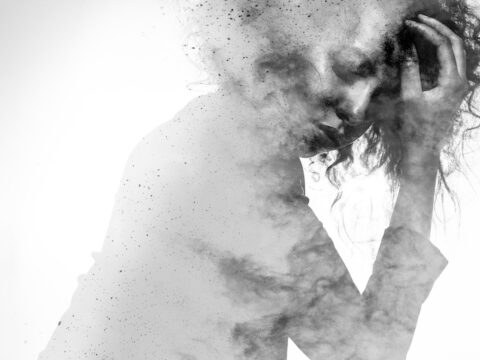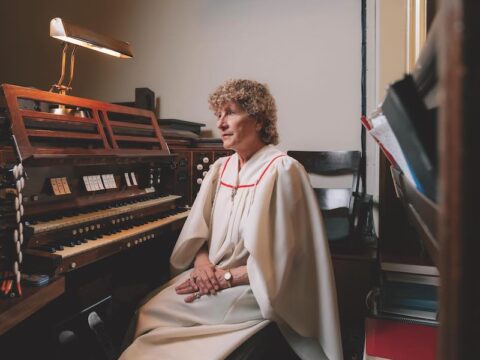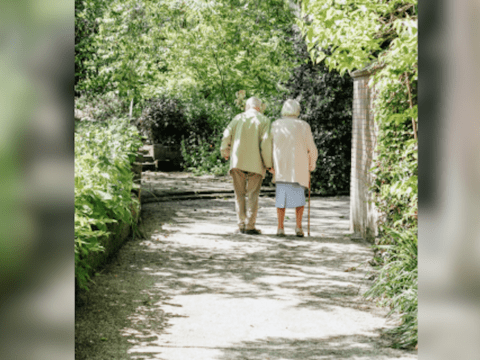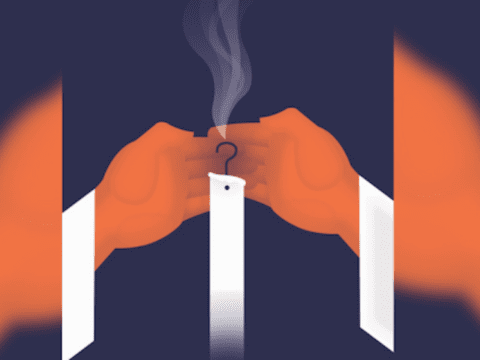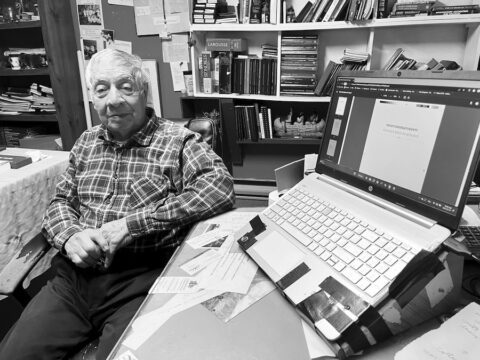“Tell me something. What kind of gay are you? Why do you still veil?”
An Egyptian female doctor poses these questions to Lamya H (a pseudonym) during a medical examination in the United States. The doctor, like countless other people, both Muslim and non-Muslim, is incredulous as to how a practising Muslim can also identify as queer.
You may unsubscribe from any of our newsletters at any time.
Lamya documents this exchange in her recent memoir, Hijab Butch Blues, which charts her personal experiences alongside stories of the great Prophets from the Qur’an. The book is part of an up-and-coming wave of Muslim-authored work that attempts to dispel widely held beliefs about queerness and faith — namely, that the two cannot coexist as Muslim identities.
“Within both Muslim communities and queer communities, there is a widespread assumption that being LGBTQ+ and Muslim are incommensurable,” says Katrina Daly Thompson, a professor at the University of Wisconsin-Madison and the author of the new book Muslims on the Margins: Creating Queer Religious Community in North America. “Not only is this inaccurate, but it also has negative consequences for LGBTQ+ Muslims, who may either hide their true selves from those around them or leave Islam altogether.”
Memoirs have become a key medium to disrupt this myth of incompatibility, giving authors a space to share their fears, dreams, vulnerabilities, challenges and beliefs. Their books can help open minds and broaden perspectives of Muslim readers while also rejecting Islamophobic assumptions about the faith being inherently anti-queer.
“One of the things I’ve learned to do is get really personal,” Lamya says. “Stories are really helpful — having nuanced conversations where you bring in why something affects you or why you make certain decisions.”
Lamya’s Hijab Butch Blues is one of many recently released queer Muslim memoirs. Leyla Jagiella’s Among the Eunuchs: A Muslim Transgender Journey (2022) reflects on a Muslim trans woman’s life-changing experiences of third-gender communities in South Asia. Amrou Al-Kadhi’s Life as a Unicorn: A Journey from Shame to Pride and Everything in Between (2020) is the story of a British Iraqi drag queen’s quest for belonging. And Samra Habib’s We Have Always Been Here: A Queer Muslim Memoir (2019) follows a Pakistani Ahmadi Muslim’s immigration to Canada and explores how faith, feminism, family and forgiveness converge.
“When queer Muslims share their real-life stories, it leaves a legacy,” says Muslim author and theologian amina wadud, who spells her name using lowercase letters. “It is the silence, invisibility and lack of queer Muslim narratives which leads others to misunderstand queer realities and diversity. We need literature that confirms the extent of that diversity — because all Muslims are not alike, and even all queer Muslims are not alike.”
wadud’s 1999 book, Qur’an and Woman, is a foundational read within Islamic feminism, a growing movement that claims gender equality is granted and validated by the faith. Rallying against gender hierarchies and other forms of oppression, Muslim feminists often become natural queer allies.
More on Broadview:
- Sheima Benembarek’s ‘Halal Sex’ explores Muslim women’s intimate lives
- ‘I say with pride that I am from the favela’
- I was ashamed to be Chinese and queer, but now I celebrate
Allyship also figures in Thompson’s Muslims on the Margins. The book is a deep dive into creating communities for queer, trans, nonbinary and nonconformist Muslim identities, and it defines “queer” in expansive terms. “I argue that the acceptance of LGBTQ+ and other marginalized Muslims makes some Muslim communities ‘queer,’ in the sense of different from the norm,” they explain.
Thompson believes that LGBTQ+ Muslim stories can be enlightening for those who were raised with orthodox Muslim teachings, as well as for those new to the faith. “I would not have converted to Islam if I thought God did not accept LGBTQ+ Muslims, and it certainly is affirming to see more queer Muslims finding their voice and being represented to wider audiences,” they say.
Fictional stories about Islam and queerness are equally impactful. Roses, in the Mouth of a Lion by Bushra Rehman (2022) is a coming-of-age tale about a young Pakistani woman in New York City living amid the tensions between Islamophobia and the pressures to conform to social norms within her immigrant community. In the same page, she’ll evade her conservative parents and bemoan her culture while making sincere prayers to Allah. There have also been many queer Muslim releases in the realm of young adult books, such as The Henna Wars by Adiba Jaigirdar (2020) and The Love and Lies of Rukhsana Ali by Sabina Khan (2019), introducing concepts of inclusivity, diversity and acceptance to younger readers.
Yet it’s impossible to overlook the zealous movements against queerness within some conservative Muslim communities and Muslim-majority countries, leading to book boycotts and even government-mandated crackdowns on rainbow-coloured toys and clothing for kids. Amid this hostile environment, queer Muslim authors who tell their stories often face backlash for going public with their identities. Some even put their lives on the line if they’re living in or visiting countries where homosexuality is a crime.
Lamya, for example, wrote her story anonymously both for privacy and for safety. Her work, which re-interprets tales of the Prophets and presents them as real, relatable and sometimes flawed characters, can come across as controversial to conservative Muslims. She also doesn’t feel obligated to share details of her sexuality with her family.
“Coming out is always risky, even in supposedly liberal environments like the United States, where we’ve seen a recent increase in anti-LGBTQ+ legislation,” points out Thompson. “LGBTQ+ Muslim authors are incredibly courageous….They are paving the way for more of us to find our voices, and slowly changing views of those who encounter our work.”
Both Thompson and wadud attribute the current uptick in LGBTQ+ Muslim stories to the perceived novelty of juxtaposing Islam and queerness. “This is still a unique corner, and some publishers want to promote the unusual as new or innovative,” says wadud. She adds that the increase in diverse Muslim characters in books and on screen can serve as a double-edged sword, allowing mainstream publishers and programmers to bash Islam by advancing the narrative “that LGBTQ+ identity is anathema for Islam.”
This is why it’s important for Muslim voices to lead this literary movement. When authors claim to be both practising Muslims and LGBTQ+, they make the profound statement that they’re telling their stories within a framework of faith, as they reconcile Islam and queerness without forgoing one in favour of the other.
Ayesha Chaudhry, professor of Islamic and gender studies at the University of British Columbia and author of the 2021 memoir The Colour of God, says that it’s “crucial” to have access to novels that explore Islam and queerness. “Each story helps us discover something new about ourselves, helps us grow in different and unexpected ways.”
Emphasizing that Muslims are far from a monolith, she explains that queer Muslim experiences may be commonplace among Muslims yet are rarely spoken about at mosques, Muslim schools or family gatherings. “This erasure hurts all of us,” she says. “It cuts us off from ourselves and from each other, whereas sharing these stories creates possibilities for compassion, caretaking and deepening relationships.”









